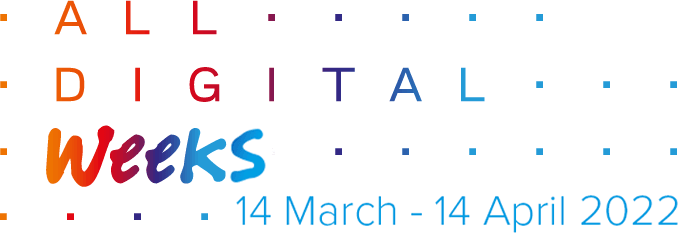The Get Online Week 2012 (“Netezz nk a h ten ” in ungarian language) campaign gave a uni ue opportunity for Hungarian telecentres to demonstrate their impact, daily work and the role they play in improving digital literacy and strengthening e-skills at local level. Telecentre-Europe’s local partner for coordinating Get Online Week 2012 activ ities in Hungary has been DemNet Foundation.
During the campaign week, most telecentres offered introductory training courses and provided advisory services to members of local communities. In addition, services of the Government public administration’s internet portal (www.magyarorszag.hu) was also introduced, where – through personal gateways – a number of administrative issues can be initiated or fully conducted.
The Get Online Week 2012 (“Netezzünk a héten!” in Hungarian language) campaign gave a unique opportunity for Hungarian telecentres to demonstrate their existence, daily work and the role they play in improving digital literacy and strengthening e-skills at local level. Telecentre-Europe’s local partner for coordinating Get Online Week 2012 activities in Hungary has been DemNet Foundation. In Hungary, out of 360 working telecentres, approximately 50 telecentres participated in the campaign. Throughout the week they promoted the telecentres and messages of the campaign in their communities.
This year the campaign highlighted the problems of youth unemployment, senior inactivity and the low level of civic participation, as well as the possible solutions that telecentres can offer. During the week, 3.339 people clicked on the counter saying they were also participants of the Get Online Week 2012 campaign.
The Get Online Week campaign was also aimed at raising the visibility of telecentres and highlighting what sort of learning, training and job opportunities were becoming accessible to those who were e-skilled.
 Under the campaign’s subtitle “Telecentres in the Centre of Attention” the campaign was used to demonstrate that telecentres do exist and serve their local communities. Telecentres in Hungary face serious problems of sustainability as they do not receive any regular funding from the government. The government should be more aware of the need for telecentres and the important role they play in increasing digital literacy, especially in rural Hungary.
Under the campaign’s subtitle “Telecentres in the Centre of Attention” the campaign was used to demonstrate that telecentres do exist and serve their local communities. Telecentres in Hungary face serious problems of sustainability as they do not receive any regular funding from the government. The government should be more aware of the need for telecentres and the important role they play in increasing digital literacy, especially in rural Hungary.
During the campaign week, most telecentres offered introductory training courses and provided advisory services to members of local communities. In the basic training course daily used internet applications such as Skype, Gmail and Facebook were presented to participants. Skillage and Internet Buttons were also demonstrated and tried by participants. In addition, services of the Government’s central public administration internet portal (www.magyarorszag.hu) was also introduced where – through personal gateways – a number of administrative issues can be initiated or fully conducted.

Target groups of the campaign:
- Senior citizens
An important target group of the campaign were senior citizens. Their e-skills are the lowest, although most of them show interest to learn about the use of computer and internet. Specially designed courses and tools – such as Internet Buttons – would be necessary to raise their curiosity, motivation and encouragement. ICT proves itself as a good tool for building bridges between generations.
» Read more on our community site about “Seniors in action” - Children
 Telecentres kept their doors wide open to children, who are using computers frequently, however, their knowledge and areas of interest is quite limited. Telecentres play a very important role in educating children on safe internet use, showing them meaningful and educative web content and the conscious use of social media. Telecentres have realized the need to educate parents as well, who are the most important control over the use of internet of their children.
Telecentres kept their doors wide open to children, who are using computers frequently, however, their knowledge and areas of interest is quite limited. Telecentres play a very important role in educating children on safe internet use, showing them meaningful and educative web content and the conscious use of social media. Telecentres have realized the need to educate parents as well, who are the most important control over the use of internet of their children. - Youth
The most important target group of Get Online Week 2012 campaign were the young people between the age of 16-24, especially those who finished their education, but have not been able to find a job. As it was emphasised, by 2015 90% of the jobs will require certain level of e-skills, therefore it is essential for everyone to effectively respond to this challenge. DemNet works closely with five telecentres to design a specific training program for developing their skills (including e-skills) to better suit the needs of modern labour market. During the campaign, a seminar was held for telecentres and other professionals to present the concept of these courses and to discuss about the specific needs of the target group.
DemNet works closely with five telecentres to design a specific training program for developing their skills (including e-skills) to better suit the needs of modern labour market. During the campaign, a seminar was held for telecentres and other professionals to present the concept of these courses and to discuss about the specific needs of the target group.
» Download the complete report of Get Online Week 2012 in Hungary
» [photo essay album] by Peter Palvolgyi
» Teleház Update (in Hungarian)
























